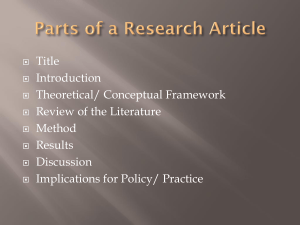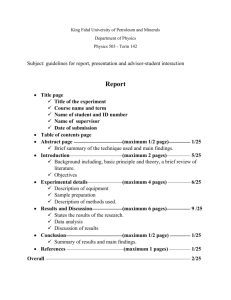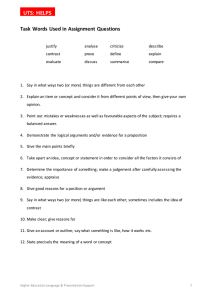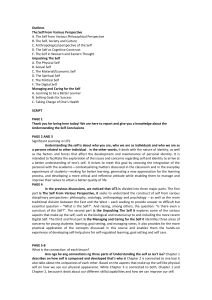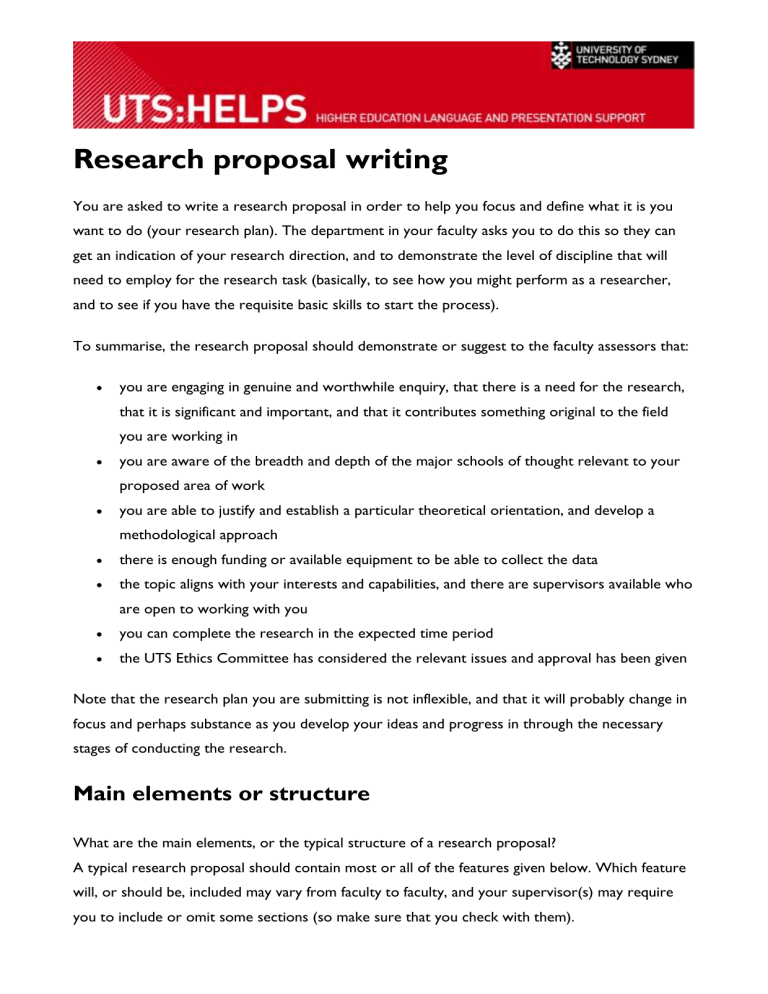
Research proposal writing You are asked to write a research proposal in order to help you focus and define what it is you want to do (your research plan). The department in your faculty asks you to do this so they can get an indication of your research direction, and to demonstrate the level of discipline that will need to employ for the research task (basically, to see how you might perform as a researcher, and to see if you have the requisite basic skills to start the process). To summarise, the research proposal should demonstrate or suggest to the faculty assessors that: you are engaging in genuine and worthwhile enquiry, that there is a need for the research, that it is significant and important, and that it contributes something original to the field you are working in you are aware of the breadth and depth of the major schools of thought relevant to your proposed area of work you are able to justify and establish a particular theoretical orientation, and develop a methodological approach there is enough funding or available equipment to be able to collect the data the topic aligns with your interests and capabilities, and there are supervisors available who are open to working with you you can complete the research in the expected time period the UTS Ethics Committee has considered the relevant issues and approval has been given Note that the research plan you are submitting is not inflexible, and that it will probably change in focus and perhaps substance as you develop your ideas and progress in through the necessary stages of conducting the research. Main elements or structure What are the main elements, or the typical structure of a research proposal? A typical research proposal should contain most or all of the features given below. Which feature will, or should be, included may vary from faculty to faculty, and your supervisor(s) may require you to include or omit some sections (so make sure that you check with them). 2 A cover page This is essential – it identifies: o your research area via a tentative or proposed title o your name, contact details, and qualifications o the institutional or university name, as well as the specific department o supervisor’s and co-supervisor’s names o the degree level being attempted Table of contents A table of contents should: o list the research proposal sections in a hierarchical way, using titles and subtitles o give accurate page references for each section Introduction An introduction should: o Follow a general-to-specific writing pattern o Start by providing background information that orientates the reader to the research’s general socio-political, historical, scientific, and educational contexts (whichever is most relevant) o Perhaps include a theoretical, personal, or policy-based motivation for the research as a starting point o Attempt to persuade, inform or indicate to the reader of the need for the research. This is an attempt to convince the reader that the research will be useful, interesting, or significant for the academic community, and may be suggestive of the research ‘gap’ which arises from the following literature review Purpose and aims This section should: o state unambiguously and concisely the purpose of the research (and situating it in the broader context) o outline the aims and key research questions (make sure that you relate the aims to the purpose above and to the research questions which follow on from this) 3 Literature review The purpose of this is to: o demonstrate to your readers that you have read enough to show that you are aware of who the most significant writers or researchers are in your area of research o specify which issues or concepts you will concentrate on in your review (this may well change as you read more widely and deeply) o show that you can exercise critical judgement in selecting which issues to focus on and which to ignore o show that you can take a critical approach to your area of research o argue for the validity of your area of research in terms of its need to address a ‘gap’ o establish the theoretical orientation you are planning to take Research design (or methodological approach) The purpose of this is to describe your research plans and approach by: o indicating the rationale and theoretical source for your choice of research approach o describing your rationale for the selection of participants, methods of data collection and analysis, and the steps you will take to ensure that ethical practices are followed o suggesting the limits, restrictions or boundaries of your research o providing a timetable or research action plan which explains each of the tasks to be carried out and the anticipated times for completion (the format of this should be clear and concise) Thesis structure This section should provide: o a description of each proposed chapter via a small paragraph which shows how it links to any previous chapters, and how links to any chapters which may follow o a proposed table of contents (following the same rules as given above) Significance/expected outcomes This section should provide: o the anticipated outcomes 4 o a series of paragraphs predicting of the significance of the research Glossary of terms This section should provide: o a list of specialised terms, words, or concepts, and their meanings (e.g. foreign borrowings, acronyms, specialised concepts etc.) Appendices This section should provide: o relevant documents which are best not seen in the main proposal text (because they affect readability). These may be source documents, pilot study data, interview questions, surveys questionnaires instruments, etc. References This section should provide: o a list of the sources or academic works that have been found and consulted up to the present o use the Harvard UTS referencing conventions, as adopted by most faculties in UTS, or use one recommended by your supervisor(s) Adapted from the following source: Royce, T 2009, Writing a research proposal, ELSSA Centre, UTS.
